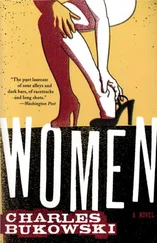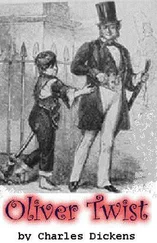—
Finally he emerged onto Whitman’s fourth floor, Alice’s backpack dragging on his shoulders and smacking against the middle of his back, shitloads heavier than he would have guessed, especially considering the way she gallivanted all over the city with that thing. Oliver also was pulling her travel suitcase behind him. He was worrying about how pissed she’d be. The hallways perennial in their brightness, that constant tart, antiseptic smell of cleaning fluid. Rolling shelves were abandoned at random junctures, their uncovered trays of half-eaten lunches stacked in sloppy piles. Oliver passed blood vials left on some sort of lab rack. He flashed back to New Hampshire: he couldn’t use the john in Alice’s room because they were measuring her urine output, and it wasn’t worth the risk to disturb the plastic pot that had been placed over the toilet’s opening. One night, like always when he had late-night soda, Oliver’s bladder had acted up. In the bathroom at the end of the hall, he’d heard the night security guard; locked behind a stall door he was quietly moaning and making sounds of quick friction, noises any man recognizes from his own fist-pumping episodes.
Oliver focused about two-thirds of the way down the hall, about where Alice’s room number would be. The stylish Indian doctor stood, addressing an Asian man and woman as if directness would ensure understanding. “You really should talk to Eisenstatt about this,” Bhakti said. “And we do need a decision on the DNR order.” The Asian woman turned from the doctor and started speaking in some Asian language to the man, who was maybe ten years older. He answered, and the two began trading phrases. Oliver clearly heard the word resuscitate. He moved beyond them as quickly as possible.
Warning signs on the door served as yet another reminder of what they were dealing with, but Oliver didn’t need their printed proscriptions. He’d donned the protective masks and gloves for fourteen hours a day, was well accustomed to that layer of sweat bubbling inside the glove latex so his finger pads were always squishy, his breath ricocheting off the insides of his paper masks, rising into steam.
The small rectangular window peering into the room was covered with black construction paper, he noticed. A trademark Alice maneuver — she hated people looking in on her, wouldn’t want excess light if she was napping. Had to be a decent sign. He also knew she’d have the room like a sauna, and he removed his coat, followed by his sweater. Turning to the side vestibule, Oliver blopped pink fluid into his hands, which he washed and dried at the sink. Since it was easier to put on the mask before the gloves, he reached into the cardboard box and brought one of the little yellow guys to his face, its chemical smell immediately pungent. His last name was being called, “Mr. Culvert. Good to see you.”
Coming toward him, Bhakti showed a controlled irritation. She was a handsome woman nonetheless, striking for her dark hair and skin, her long lashes and slim figure. She asked how he was doing, though he knew it was a formality.
“Well, we got to this point,” Oliver answered. “Day fifty-one, that’s pretty good.”
“I’m sorry?”
“The first hundred days after diagnosis? They’re key, right? We’re on day fifty-one.”
Bhakti softened, eyes widening enough that she looked embarrassed for him. “I’m not sure what you were told or read.” Her mind was active, calibrating. “Those first hundred days after a diagnosis are key. Getting through these first six months is key.” Lashes batted, emerald-green irises focusing on him. “Your wife will go through a number of risk periods. That’s what happens. She gets past one marker, we look to the next. The first hundred days after the transplant. The first year.”
Down the hallway the Asian brother and sister’s discussion had turned heated. An orderly had stopped next to a nurse, and both were watching. Dr. Bhakti, meanwhile, had a shapely upper lip, one ripe with possibility. She told him that Dr. Eisenstatt was going to be in shortly. If Oliver needed to talk to him more…
Oliver stopped listening. Washing his hands for a second time, he left the faucet dripping, grabbed protective gloves from the box with the L sizes. He piled his jacket and sweater together, folded them under one arm. Pulling the travel suitcase behind him, he steeled himself, leaned his shoulder into the door.
—
Alice wore a tie-dyed motorcyclist’s bandanna wrapped around her head and the white-framed cat’s-eye granny glasses she favored whenever she was hand sewing. The purple and pink knits that she often described as magical were wrapped, twisted around her neck like a boa constrictor, or the scarf of an early aviator. Inside her fluffy, cotton-candy-colored robe, with her lower extremities covered by a multicolored quilt that had been knitted by her great-grandmother (then passed down through the generations of women in her family), Alice looked luxurious in her comfort. From beyond a fuzzy pink sleeve, she was waving three postcards.
The purpose of overhead lighting panels was to make evident to the medical staff all possible physical problems, but orange sheets of crepe paper had been taped over them, and the space had the muted vibe of a hospital room transformed into an opium den. A lovely melody, courtesy of Stevie Wonder, carried from the bedside CD player, where framed family photos faced the room. Oliver followed the arc of his wife’s waving hand, across the room, to the imaginary line’s logical end point. What had been a dull wall now boasted an oil spill: bright colors, body parts, ripped magazine pages.
At the near juncture where the long separating curtain met the wall of windows, Tilda stood on a chair. Responding to Alice’s direction, she was lifting the end of a series of taped-together pages, stretching them so they were no longer sagging but taut. Running across half the partition, a thick-markered message read: CANCER SCHMANCER SO LONG AS YOU’RE HEALTHY.
Alice paused and acknowledged her husband. Mischief and delight danced across her face. “We’re making headway, don’t you think?”
He took three steps and reached her bedside. For the second time this day he placed a hand on each of Alice’s cheeks. Once again he held his wife in place.
Every kiss had to let her know.
“Hello, my heart,” he said.
Her expression was satiated and dreamy, and he tried to memorize that moment. “You two’ve been busy.”
“I was going to call and ask if you could bring a rug.” Alice’s eyes danced again. “You know, something big and patterned. Tilda felt that might be a bit too, I don’t know…arabesque.”
“It’s already quite arabesque up in here,” Oliver answered. “Knowing you two, it’s only going to get arabesquer.”
Oliver accepted Tilda’s remonstrations about making time in his busy schedule to grace them with his presence, and dutifully apologized for how long it had taken to make it back uptown. He assured Alice the baby was doing great, really great, and asked how she was, if the doctors had said anything (or even been in yet). He told Alice about the calls from her mother, ready either to come down to the city or to have the child come up to her (naturally). Lifting the mask back up to his nose, he said, “These things smell like baby poo.”
“Oh, let me.”
Her inhalation was that of junkie needing a hit; Oliver recognized he had to change the conversation, keep Alice from sulking.
“I like these yellow ones,” he said. “They’re jaunty, more…optimistic.”
“We were talking about that.” Tilda tried to hide a glance, checked her beeper.
The requisite knock of doom. Entering now, a lithe Dominican woman moved with efficiency and pep. Her hair was frizzy and reached in eight directions. A mole about the size of a quarter was conspicuous over her right brow. “Vitals time,” she announced, then eyed the amount of water Alice had left untouched in her glass. The nurse made an unhappy sound. “You been through this already,” she said, “so you know drinking water and sucking on ice chips is a major importance. And still I got to flog that dead cat.” Her voice changed now, her words came quicker, as if she were recounting newly memorized facts before they disappeared: “We got four pillars for chemo patient recovery. Uno: hydration. Number two, protein. Then exercise. And mouth care.”
Читать дальше











